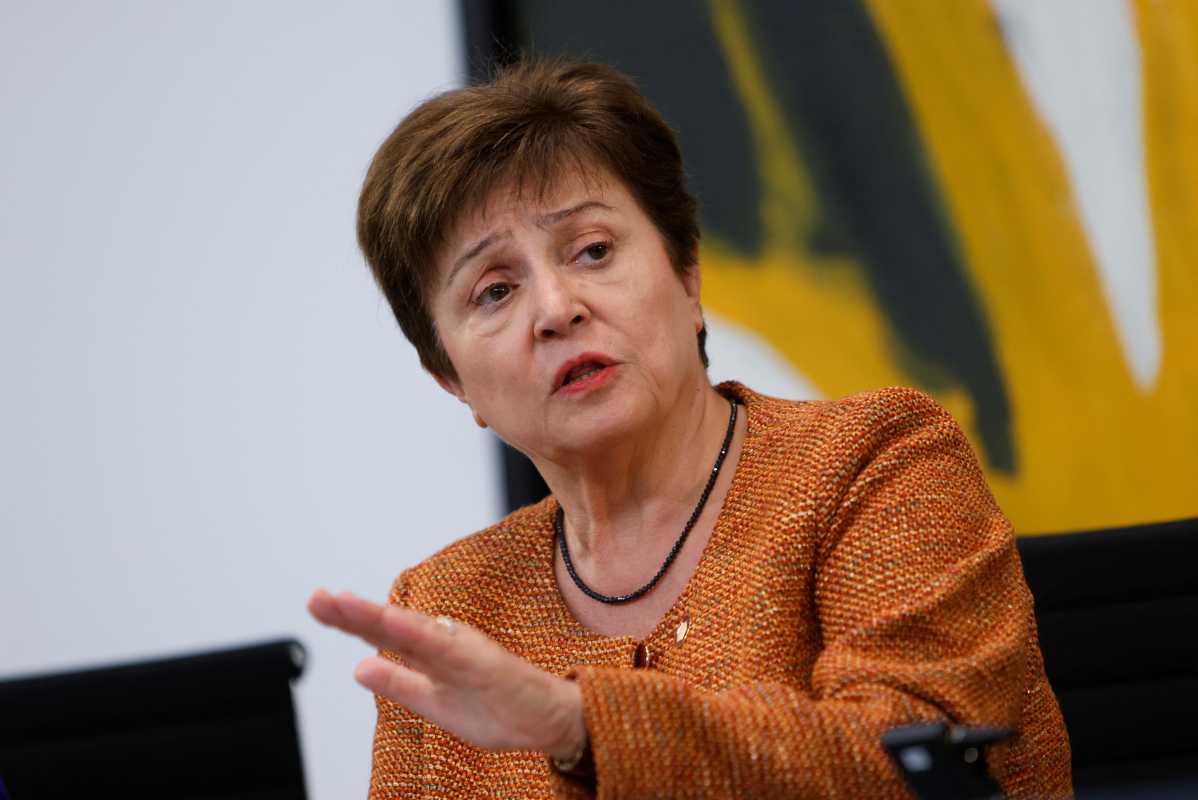People
Kristalina Georgieva: The Accomplished Leader and Advocate for Global Change

Table of Contents
- Introduction
- Early Life and Education
- Career and Accomplishments
- Leadership at the World Bank
- Key Takeaways
- Key Facts
- Frequently Asked Questions
Introduction
Kristalina Georgieva is a renowned economist and influential leader who has dedicated her career to addressing global economic challenges and promoting sustainable development. Currently serving as the Managing Director of the International Monetary Fund (IMF), she has made significant contributions to global policies on poverty reduction, climate change, and gender equality.
Early Life and Education
Born in Sofia, Bulgaria in 1953, Kristalina Georgieva grew up during a time of political and economic upheaval in the country. Her family played a crucial role in her upbringing, instilling in her values of hard work, determination, and the importance of education.
Georgieva pursued her higher education at the University of National and World Economy in Sofia, where she earned her bachelor’s and master’s degrees in Political Economy and Sociology, respectively. Later, she continued her studies at the London School of Economics and Political Science, where she obtained a Ph.D. in Economic Science.
Career and Accomplishments
Kristalina Georgieva’s career has spanned various international organizations, where she has consistently demonstrated exceptional leadership skills and a deep understanding of global economic issues.
She began her professional journey serving as an economist and policy analyst at the World Bank, where she worked for over two decades. During this time, she played a key role in shaping the organization’s response to numerous global challenges, such as the Asian financial crisis and the transition of Eastern European economies after the fall of communism.
Georgieva’s dedication and expertise quickly propelled her to senior leadership positions within the World Bank, including Vice-President and Corporate Secretary, as well as Director-General of the European Commission, where she oversaw the European Union’s response to humanitarian crises and secured support for development initiatives.
Leadership at the World Bank
One of Kristalina Georgieva’s most notable achievements was her appointment as Chief Executive Officer of the World Bank in 2019. She became the first person from an emerging economy to hold this position, solidifying her status as a trailblazer in the field of international development.
During her tenure as CEO, Georgieva successfully introduced reforms to streamline the organization’s operations and enhance its effectiveness in addressing pressing global challenges. She led efforts to mobilize resources and support for developing countries, focusing on issues such as poverty reduction, climate change adaptation, and social inclusion.
Under Georgieva’s leadership, the World Bank also strengthened its commitment to gender equality, implementing initiatives to promote women’s economic empowerment and improve their access to financial resources and opportunities.
Key Takeaways
1. Kristalina Georgieva is a prominent economist and leader in the field of international development.
2. She has held various senior positions at the World Bank, European Commission, and currently serves as the Managing Director of the IMF.
3. Georgieva has made significant contributions to global policies on poverty reduction, climate change, and gender equality.
4. She is known for her expertise in mobilizing resources and support for developing countries.
5. Georgieva has introduced reforms to enhance the effectiveness and efficiency of international organizations.
Key Facts
| Full Name: | Kristalina Ivanova Georgieva-Kinova |
| Date of Birth: | August 13, 1953 |
| Nationality: | Bulgarian |
| Education: | Ph.D. in Economic Science from the London School of Economics and Political Science |
| Current Position: | Managing Director of the International Monetary Fund (IMF) |
Frequently Asked Questions
Q: What is Kristalina Georgieva known for?
A: Kristalina Georgieva is known for her contributions to global policies on poverty reduction, climate change, and gender equality. She has held prominent leadership positions in international organizations and has been instrumental in mobilizing resources for developing countries.
Q: What are Kristalina Georgieva’s key accomplishments?
A: Some of her key accomplishments include being the first Chief Executive Officer of the World Bank from an emerging economy and advocating for reforms to enhance the effectiveness and efficiency of international development organizations. Additionally, she has played a crucial role in addressing various global challenges, such as the Asian financial crisis and the transition of Eastern European economies.
Q: What is Kristalina Georgieva’s educational background?
A: Kristalina Georgieva holds a Ph.D. in Economic Science from the London School of Economics and Political Science. She also earned bachelor’s and master’s degrees in Political Economy and Sociology, respectively, from the University of National and World Economy in Sofia.
Q: What is the significance of Kristalina Georgieva’s leadership at the World Bank?
A: Kristalina Georgieva’s leadership at the World Bank marked a significant milestone as she became the first person from an emerging economy to hold the position of Chief Executive Officer. Her tenure was characterized by a focus on poverty reduction, climate change adaptation, and gender equality, as well as implementing reforms to streamline the organization’s operations.
Q: What is Kristalina Georgieva’s current role?
A: Kristalina Georgieva currently serves as the Managing Director of the International Monetary Fund (IMF). In this role, she continues to advocate for global economic stability and sustainable development.
As a global leader in economic development and advocacy, Kristalina Georgieva’s contributions have had a significant impact on policies and initiatives implemented worldwide. Her dedication to addressing pressing challenges, such as poverty, climate change, and gender inequality, continues to inspire future generations of leaders and change-makers.












